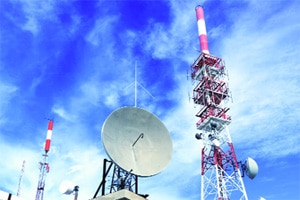Sticking to its stand that auction should only be held if the government is able to release sufficient spectrum, the Telecom Regulatory Authority of India (Trai) on Monday went a step further and asked the government to explore alternative ways (other than auctions) of allocating radio waves to mobile operators.
In its 38-page response to the government, which had wanted the regulator to reconsider its stand on holding a mega auction by releasing more spectrum and a simultaneous bidding process for 2G and 3G spectrum, Trai said that unless alternative methods are not explored, all policy goals of the government such as digital India and broadband connectivity would collapse.
Speaking to FE, Trai chairman Rahul Khullar said that a public debate on alternative ways of allocating spectrum should begin now or else it would be impossible to solve the problem of spectrum shortage in the country.
Click here for graph
“I can only repeat what wise people have said before: The risk of a wrong decision is better than the terror of indecision,’’ Khullar added.
The communication to the department of telecommunications clearly brings out the urgency towards exploring alternatives when it says, “Spectrum availability in India for commercial use as a whole is about the lowest in the world… It is important to recognise that auctions are not the only way spectrum is allocated. Even in jurisdictions where far larger quantities of spectrum are available for commercial deployment, different approaches are being taken,” Trai has said.
Trai has also underlined the importance of alternative means since so far the government has failed to release more spectrum for commercial use. “For the past seven years (or more) a dialogue has taken place between the DoT and ministry of defence to release additional quantities of spectrum. To be perfectly candid, this dialogue has gone nowhere, ie, it has remained inconclusive,” Trai has said.
It has even given the example of Japan, which has never used auctions to allocate spectrum, or Nordic countries where spectrum is allocated at a nominal price but with onerous roll-out obligations.
According to analysts, the Supreme Court’s response to the Presidential reference made by the government before it in 2012 stated that auctions are not the only way to allocate natural resources. The government can opt for other methods so far as they are fair and transparent and stands the test of scrutiny.
The reason why Trai has stated that the there would be a big-time crisis if more spectrum is not made available before auctions are conducted is that there is only 184 MHz spectrum in the 900 MHz band, the amount that is currently held by operators whose licences are up for renewal in 2015-16. Further, there isn’t enough 1800 MHz spectrum (only 104 MHz) as a back-up as was the case in this year’s auctions held in February. In such a scenario, if the operators fail to win back their 900 MHz band spectrum, they will have no option but to close down their services. Even if they win it back, it would be at a huge price, preventing them from investing further in services and network. If a new player enters in lieu of the incumbents, it would take time to start services, so there would be disruption in services.

